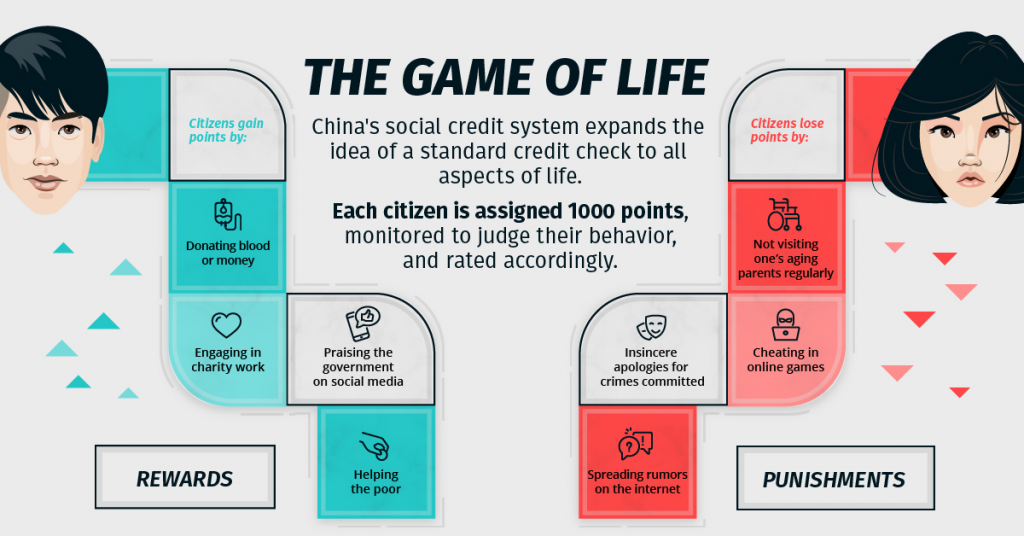Disclosure: Privacy Australia is community-supported. We may earn a commission when you buy a VPN through one of our links. Learn more.
‘Terrifying’ Metaverse: AR Pioneer Warns of Worse Impact on Privacy
Do you remember a time when needing an attractive LinkedIn account, in order to win over a new employer… just wasn’t a ‘thing?’
And for the younger dating crowd, can you recall a previous decade when attracting a new love interest did not mean needing a fully operational self-marketing account, handing personal sales, in place of a simple phone number — notably, the Instagrams and Snapchats?
You probably can. But it’s a surprise how quickly all of common reality can change as a result of available technologies leveraged by platform creators and advertisers.
So, when we think about how the metaverse can affect privacy, the question is more one to do with how it will accelerate the lack of personal choice we have in how our data is exposed — beyond the confines of our homes, social circles, and small communities.
The metaverse is the biggest threat to privacy today
Which is why I took some time out to write this post — on what the metaverse is exactly, and how it will affect our privacy. The topic is far-reaching enough that privacy advocates need to start considering it in their efforts to personally protect this. Please note that this is a rather serious post that focuses on the dangerous consequences of AR and the metaverse.
While I believe it will further boost the performance of surgeons, and further make our conception of the virtual world more usefully inseparable from the non-virtual world, we must be very wary of darker aspects. This one is long overdue…let’s get started:
What is the metaverse?
In the first decade of 2000, it became common comedy that teenagers live more inside of their phones than in real life.
As a second decade rolled by, and augmentative social technologies increased in their power to mass-alter reality, it became a sad truth that old-timers were now using Facebook as much as teenagers — who were forced to flee to new SMs like Instagram, in order to stay hip.
Today, it’s just as common to hear a live stand-up comedian wax lyrical about married life being about momentarily dipping your head above digital waters, in order to have a real conversation at the dinner table.

Likewise, the term metaverse is not new. It has been around since 1992, coined by Neal Stephenson, in his novel Snow Crash — to describe a virtual world where users were able to more impactfully engage with each other in shared spaces.
Ever since, software developers have worked on this notion. It’s however going mainstream thanks to Facebook changing to Meta, championing a vision of a fuller digitally-connected social reality.
But the anecdote of smartphone apps, and how they radically affected the way we live today, is a good marker of what the metaverse conceptually will achieve.
More than ever, there are real virtual opportunities and obligations (such as WhatsApp messaging social groups, or needing to join a Zoom in order to virtually view a new accommodation) — there are simply more social disadvantages to not leveraging shared cyber spaces for social exchanges. And this trend will increase.
The term can still most of the time be thought of as synonymous with ‘cyberspace’ — a digital environment where people can take up virtual avatars, or accounts, to share a function or cause.
However, ‘metaversal thinking’ describes people becoming more sharply aware of the influence of shared spaces in the virtual realm for every aspect of life, either directly or indirectly. For now the framework been regarded in more trivial ways:
- For the virtual concerts hosted by Marshmello and Travis Scott in games like Minecraft and Fortnite.
- As Microsoft foresees — for virtual meeting rooms where new hires can be trained or remote co-workers can chat.
- As Meta seems to think — for fake houses we can invite our friends to hang out in.

Just to be clear, the above uses/suggestions are credible. But it’s akin to describing the Internet as Google. Each is just one application inside of something much bigger. So what will the wider meta world look like?
How augmented reality already influences us
Virtual reality (VR) being used to socially augment our reality, and subtly influence on our choices and opinions, has been an issue since at least the mid-2000’s — when the first social media (SM) giants, MySpace, Hi5, then Facebook (now Meta), hit the scene…
In the following decades, the wider public would learn of disturbing trends such as disproportionately increased anxiety, and suicide rates, particularly among young girls, as a result of SM-powered bullying and SM augmentation.
But late last year, augmented reality pioneer, Louis Rosenberg, warned about the metaverse taking the invasion of privacy even further. “Personally, I find this terrifying,” Rosenberg, who has over 30 years experience in the AR industry, says in the November 2021 article — the metaverse will be light-years more impactful on everyday life than social media ever was able to be.
The metaverse takes what was confined to social accounts we logged into, or deleted if we got tired of — and potentially accelerates its impact on reality, to the following outcomes:
Data migration cross-border
On one hand, metaverse is the regular old cyberspace, just with people attempting to create personalised experiences with fuller sharing of spaces.
But digital money, NFTs, and derivative cryptographic techniques — that allow interoperable movements of unique items cross-platform — inevitably mean one new development: the privacy of users may be sacrificed, in order to increase social tracking and consumerist exchange.
Three interesting questions the metaverse may need to know, in order to reach its apex: Who are you, Who do you know, What is your standing relative to others…?
The metaverse machine may inevitably become the greater tracking of your online reputation across different platforms — because, without deep-level tracking of the various specific resources of the users, at play with each other online, it’s harder to deepen valuable access to virtual membership spaces.
Or to apply any real-estate operational dynamic to virtual spaces, backed up by digital cash — as so many speculators seem to think the metaverse will evolve to do.

Digital currencies deepen the problem. More decisions in the virtual world may have an immediate impact on the non-virtual world monetarily.
While we’re all accustomed to swiping a contactless card to pay for goods, this may merge insidiously with the social, as we have seen with China’s social credit score system — which could give governmental and business authorities the opportunity to create a privileged and non-privileged ‘blacklisted’ class, based on subjective social opinions — political, environmental, consumer, race, and much more.
‘Dystopia’ privacy risk
Getting back to the concerned article by Louis Stephenson — he describes the increased use of AR as a dystopia in waiting.
We saw this during the 2020 pandemic period while there was a sharp increase in remote working: so was the increase in depression; riots in Australia over COVID-19 restrictions; and previous years have seen large-scale political rifts across the West — boosted by botnets, fake news, and sensationalist targeted-SM, augmenting the day-to-day perception of world events to users.
Louis asks the reader to imagine a world where walking down the road is a virtual sensory adventure filled with advertisements, data points, filtered content, and information about other pedestrians. When you walk into a shop, the sales assistant will know your shopping habits, history of purchases, and more.
He asks the reader to then further imagine a world where third-party apps virtually overlay specific use augments with ascertained information about specific people that is not publicly available. Third-party apps may blast your visual field with flashing flags, such as convict, bankrupt, Democrat, Republican — you get the picture.
This might seem far-fetched, but I would take Louis’ vision further by simply reversing how it might be used…
Instead of third-party apps extracting available information and flashing you with warnings about a person’s political beliefs or religious sentiments, groups of people may decide to display certain allegiances in order to prove their social virtue — not having a sign that says you support this-that-or-the-other cause may be enough to socially ostracize you.
Eventually, almost like tuning in to a news-source 24/7, your sense of reality will adapt to match the metaverse. You will grow more dependent on its tools and services and viewpoints (humans are creatures who need stories and narratives to exist healthily in the world).
And grow more influenced by platform controllers in charge of the algorithms. Increasingly, you will only see content that you have either subscribed to, or been encouraged to view by the platform. So that you will eventually assume most people think the same way you do. Coming across opposite views will be less common or will affect your social credit.
And it won’t be enough to simply pop out your virtual glasses, to not participate in the grand game, says Louis. Why not?
Think back to the last time you booked a holiday at a travel agent, rather than online — quicker than any of us can fathom, we have already become terribly dependent on virtual overlays of information instantly available to us. According to Louis: using the metaverse “will feel no more optional than internet access feels optional today.”
Final Thoughts
If this article seems a more philosophical exploration into the metaverse than a technical breakdown, that’s because the debate is one of philosophy. AR as a technology has been around for three decades.
A cultural shift where it will be at the centre is something new; the most important implication of metaversal technologies seems to be the potential effects it will have on our minds and society. How? That is unknown.
So many of us sense reality has fractured a thousand ways, with personalised social feeds playing a large role — the common person disagrees with his neighbour about what makes a cohesive society and what stance should be taken on any given hot topic.
And the metaverse seems to be focused on hyper-personalising human perceptions, and human attention, for as much of the day as programmers and marketers can feasibly sell to the mass public. The selling-point is human desire for pleasure; rather than it being a sensible addition to culture and society-creation.
Behind this division is a mixture of human propensity for tribal thinking, and deliberate activities of attention hustlers who know triggering tribal thinking is the best way to addict users to their media feeds.
So I agree with Louis…the greatest risk does not come from hackers and bad actors working on the outside; rather, the biggest threat is platform controllers whose job it is to market to you.
Whether a piece of content is factual won’t matter; whether it increases the attention economy, will. So, creating a reality where everything is more anxiety-ridden, which has been proven in some studies to increase sales conversions, will be a good thing if it can create long-term engagement of users.
This is a potential nightmare amid all of the benefits. But with Facebook changing its name to Meta, the crushing momentum of this new technology seems as inevitable as the internet itself.
Solutions:
Hype aside — logically, the opposite to slow, and careful growth is cancerous. When a tree grows from a seed, there are a plethora of well tested steps it must go through over a long period of time. So, while we live in the safest times in human history, depression and anxiety have steadily filled in the gaps.
We must be open-minded that digital privacy is not sacrificed in favor of convenience — and that it does not grow unpredictably out of control, into a social experiment that deeply influences our minds, what narratives are allowed or outlawed, and even that ultimate nature of reality.
Does this sound like hyperbole? Discussions of the metaverse are often couched in these grand terms. Inflation is growing. And companies are racing to digitise all aspects of trade.
We should resist completely accepting it, as I believe this system can only work if tracking becomes more detailed and normalized. As the metaverse develops, each of us can enhance our ability to participate privately.
The strongest tool available today for this, effective against governments and ISPs, is using a VPN — this is not a cure-all by any means, but it does mean you can more carefully and deliberately integrate yourself into a decentralized world, according to what best suits you — rather than being forced to by online surveillance bodies.
This is especially effective when combined with secure apps like secure browsers and private messaging tools — where truly private social spaces can be built online.





